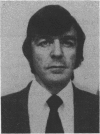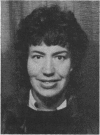Abstract
Physiological changes, and subsequent sleep responses, were recorded in a male subject during and following 338 miles of continuous walking and consequent sleep deprivation. One hundred and thirty hours of walking and a seventy-two hours post-walk recovery period were monitored. The subject walked at approximately 55% of maximum oxygen uptake (VO2 max), heart rate ranged between 102-106 b/min, and blood lactate (LA) remained below the 2 mmol/l level. No electrocardiograph abnormalities were observed either during the walk or pre- and post-functional diagnostic graded exercise test (FDGXT). Creatine kinase (CK) and creatine kinase isoenzyme (CK-MB) levels rose throughout the walk but exhibited differing depletion patterns. The ratio of CK-MB to CK (MB/CK%) did not exceed levels which are suggestive of myocardial ischaemia. Haematological variables demonstrated signs of anaemia towards the end of the walk. Catecholamine levels rose throughout the walk, with greater rises being observed in nor-adrenaline and dopamine. During the post-walk recovery phase, adrenaline concentration remained elevated. Following this extreme period of exertion, the subject demonstrated very short sleep latency and rapid entry into slow wave sleep (SWS). These sleep patterns were compared to sleep recordings made over a similar period (72 h) six months post-walk, when the subject was not exercising. Nocturnal growth hormone (GH) levels were significantly raised on the post-walk nights.
Full text
PDF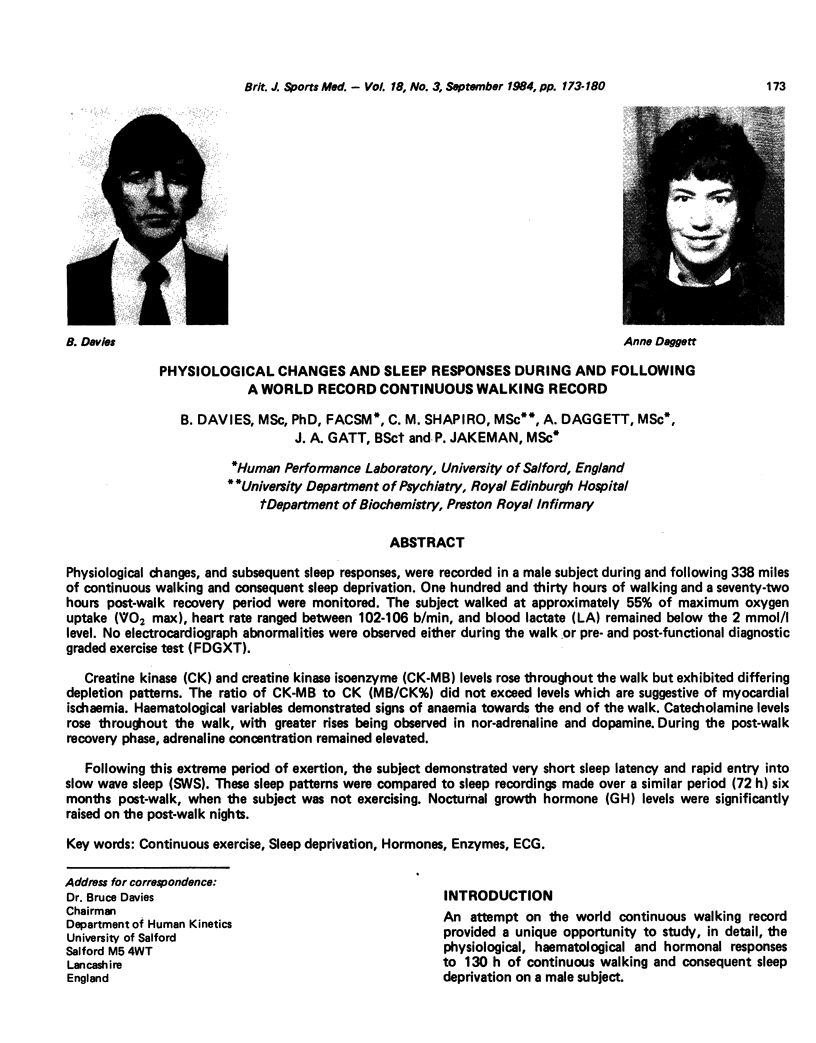
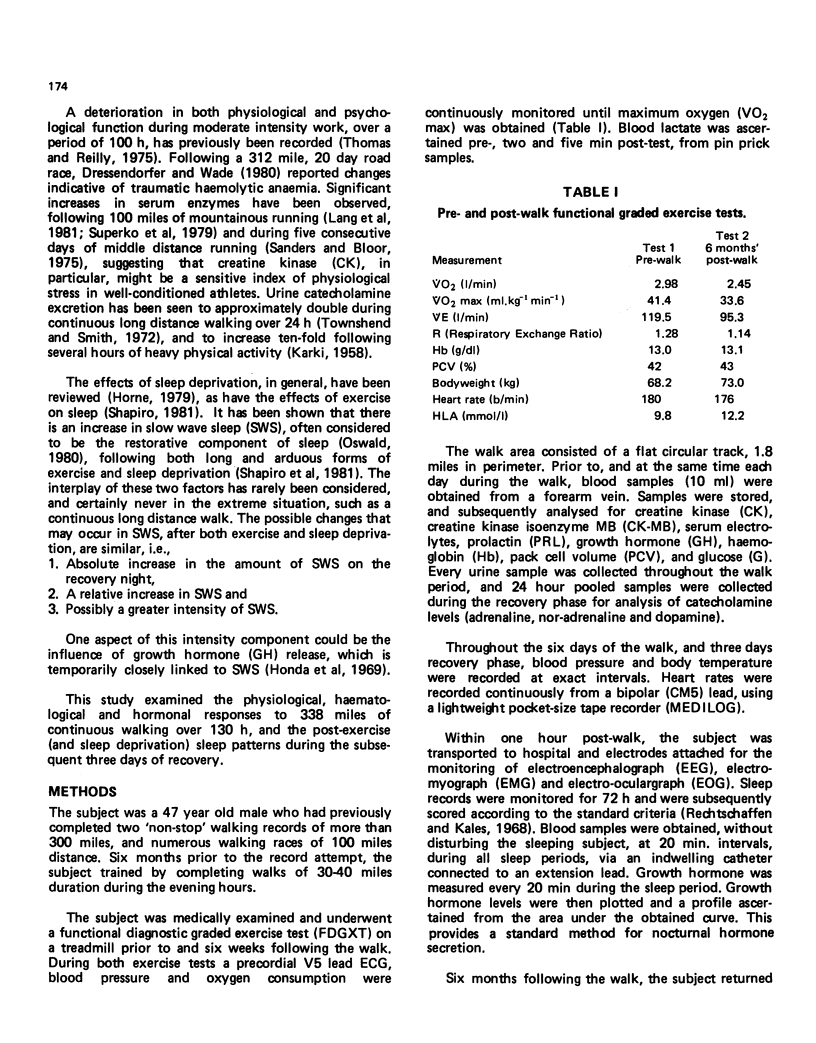
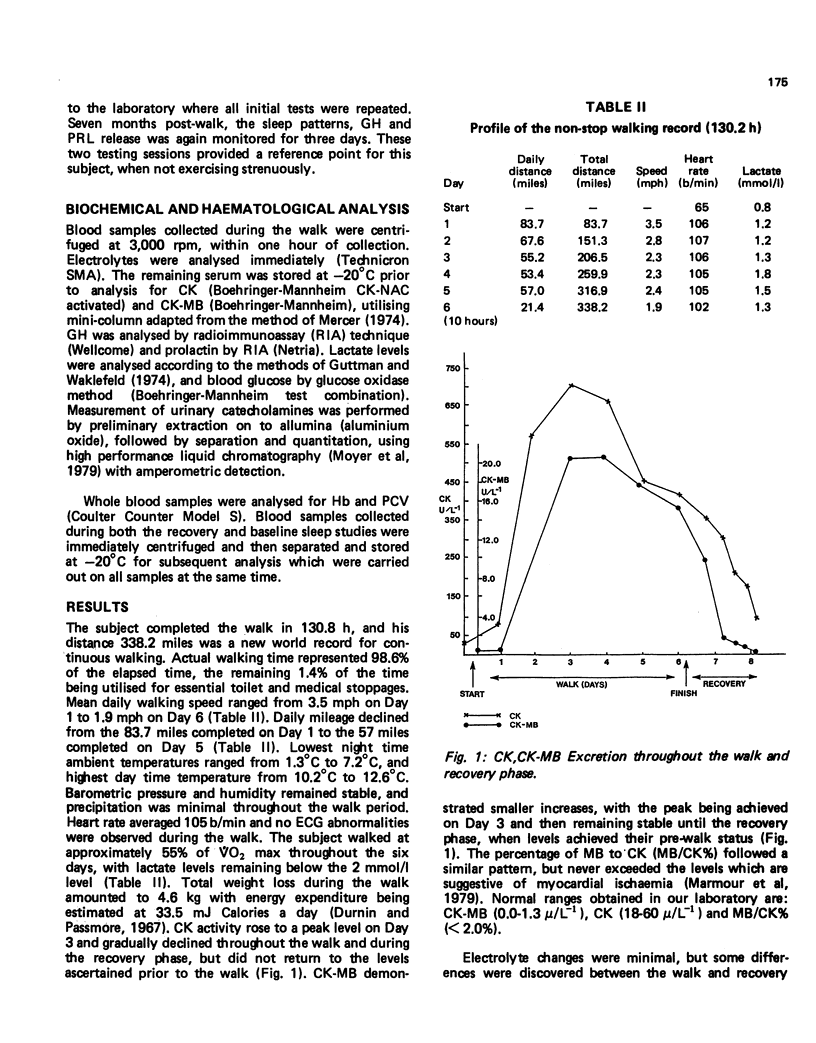
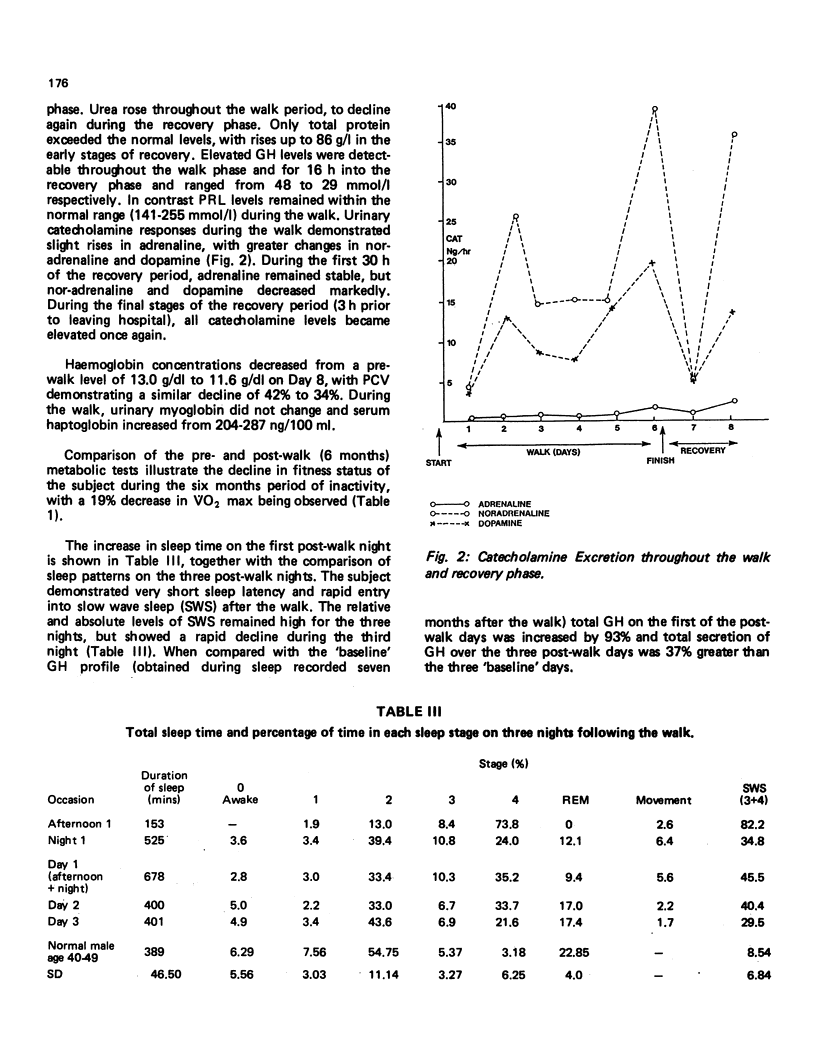
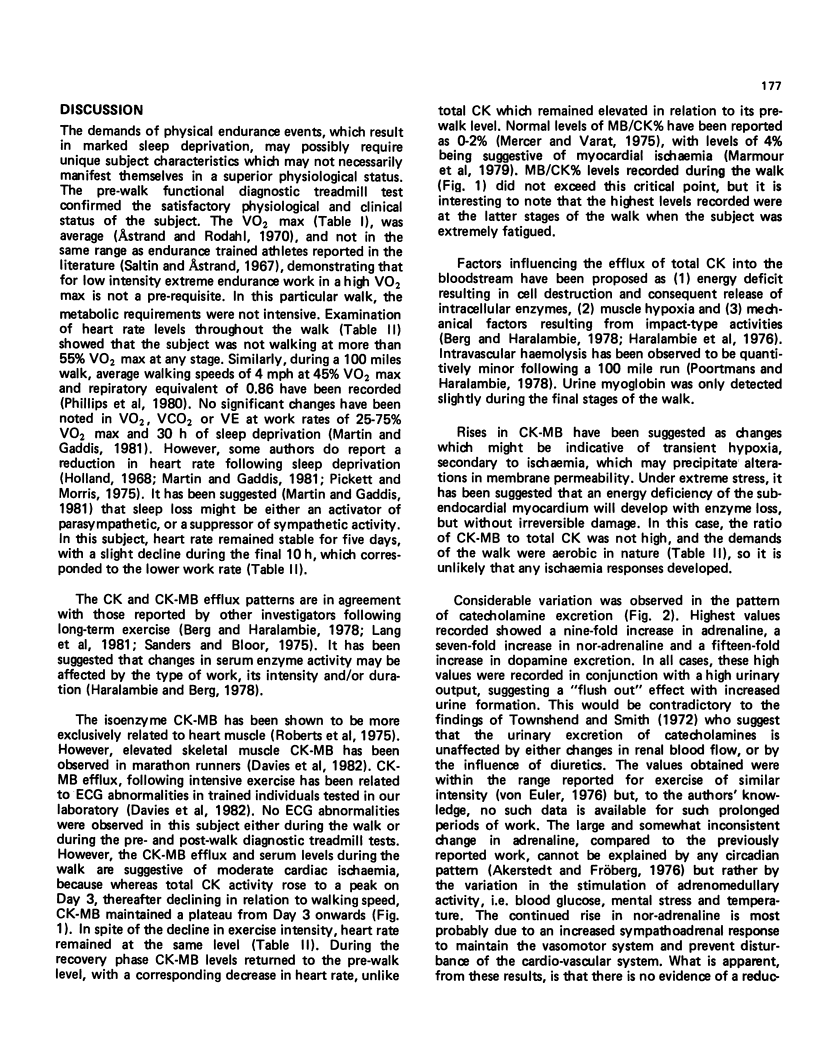
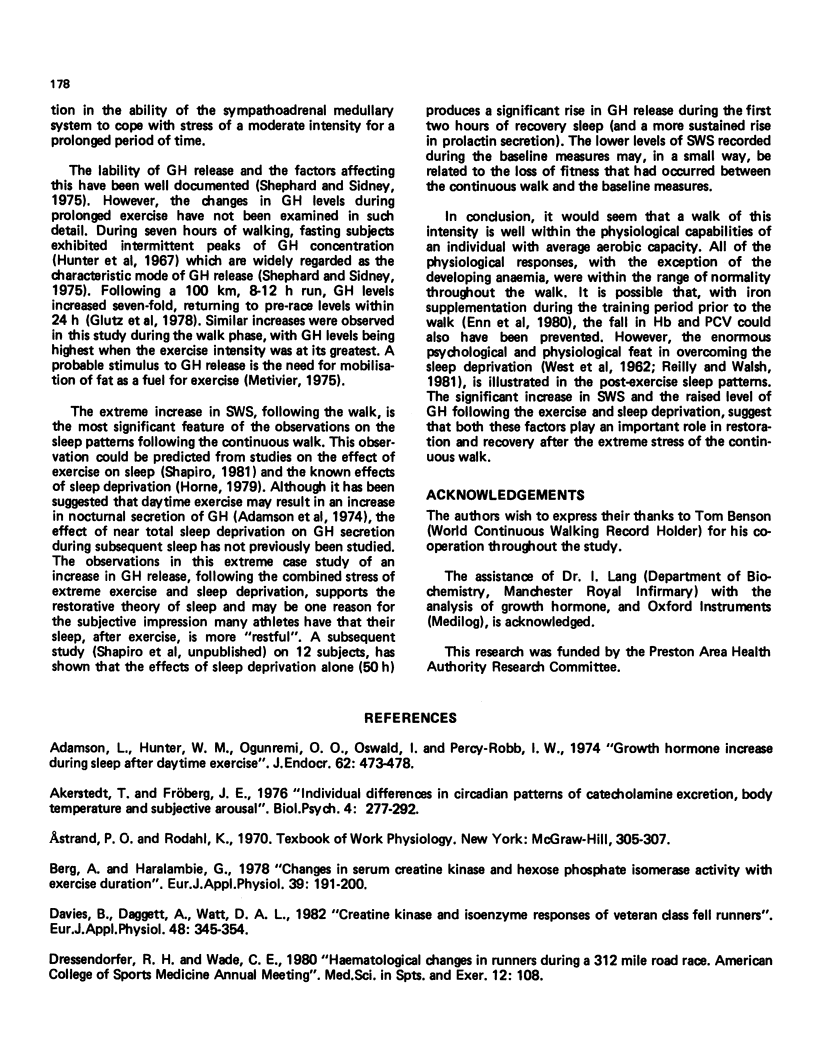
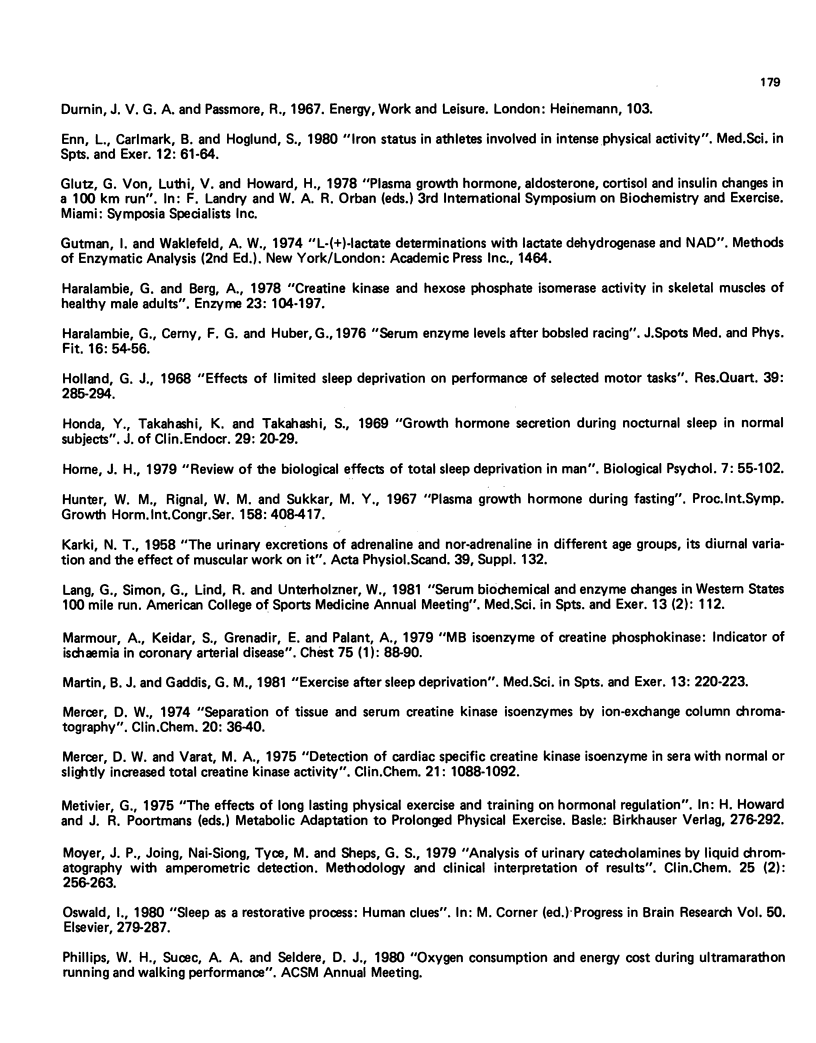
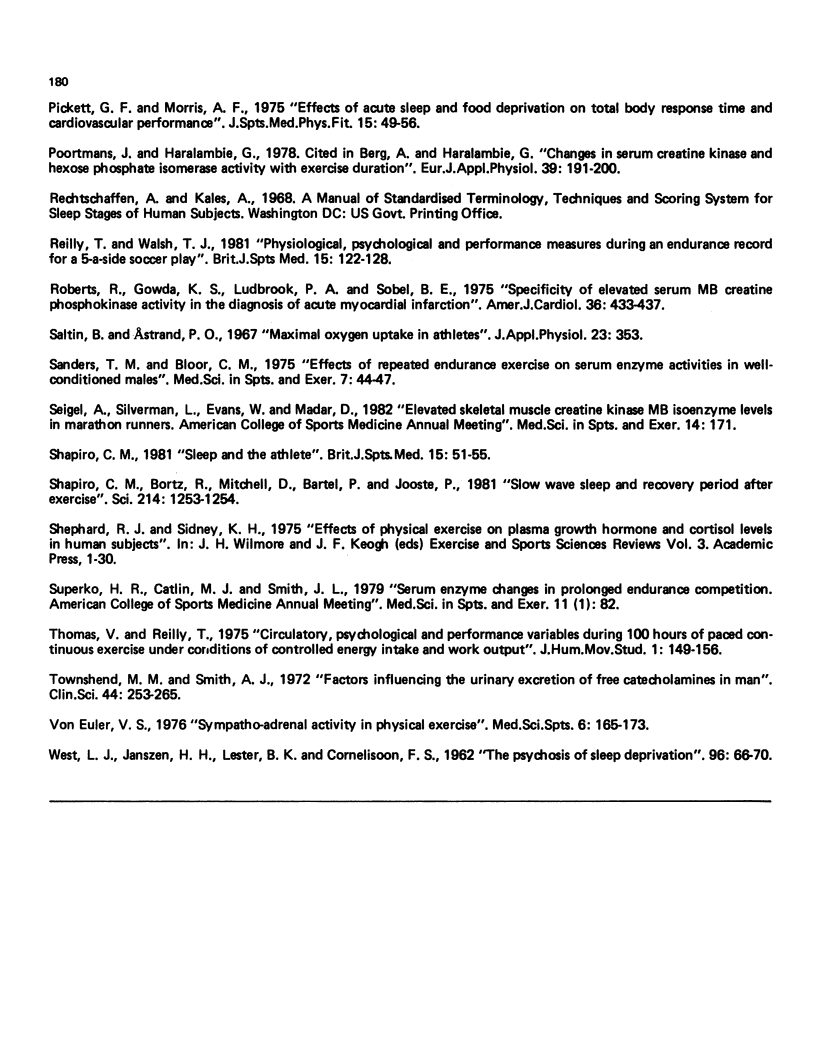
Images in this article
Selected References
These references are in PubMed. This may not be the complete list of references from this article.
- Adamson L., Hunter W. M., Ogunremi O. O., Oswald I., Percy-Robb I. W. Growth hormone increase during sleep after daytime exercise. J Endocrinol. 1974 Sep;62(3):473–478. doi: 10.1677/joe.0.0620473. [DOI] [PubMed] [Google Scholar]
- Akerstedt T., Fröberg J. E. Interindividual differences in circadian patterns of catecholamine excretion, body temperature, performance, and subjective arousal. Biol Psychol. 1976 Dec;4(4):277–292. doi: 10.1016/0301-0511(76)90019-3. [DOI] [PubMed] [Google Scholar]
- Berg A., Haralambie G. Changes in serum creatine kinase and hexose phosphate isomerase activity with exercise duration. Eur J Appl Physiol Occup Physiol. 1978 Sep 15;39(3):191–201. doi: 10.1007/BF00421346. [DOI] [PubMed] [Google Scholar]
- Berg A., Haralambie G. Changes in serum creatine kinase and hexose phosphate isomerase activity with exercise duration. Eur J Appl Physiol Occup Physiol. 1978 Sep 15;39(3):191–201. doi: 10.1007/BF00421346. [DOI] [PubMed] [Google Scholar]
- Davies B., Daggett A., Watt D. A. Serum creatine kinase and isoenzyme responses of veteran class fell runners. Eur J Appl Physiol Occup Physiol. 1982;48(3):345–354. doi: 10.1007/BF00430224. [DOI] [PubMed] [Google Scholar]
- Ehn L., Carlmark B., Höglund S. Iron status in athletes involved in intense physical activity. Med Sci Sports Exerc. 1980 Spring;12(1):61–64. [PubMed] [Google Scholar]
- Haralambie G., Berg A. Creatine kinase and hexose phosphate isomerase activity in skeletal muscles of healthy male adults. Enzyme. 1978;23(2):104–107. doi: 10.1159/000458559. [DOI] [PubMed] [Google Scholar]
- Haralambie G., Cerny F. J., Huber G. Serum enzyme levels after bobsled racing. J Sports Med Phys Fitness. 1976 Mar;16(1):54–56. [PubMed] [Google Scholar]
- Holland G. J. Effects of limited sleep deprivation on performance of selected motor tasks. Res Q. 1968 May;39(2):285–294. [PubMed] [Google Scholar]
- Honda Y., Takahashi K., Takahashi S., Azumi K., Irie M., Sakuma M., Tsushima T., Shizume K. Growth hormone secretion during nocturnal sleep in normal subjects. J Clin Endocrinol Metab. 1969 Jan;29(1):20–29. doi: 10.1210/jcem-29-1-20. [DOI] [PubMed] [Google Scholar]
- Marmor A., Keidar S., Grenadir E., Palant A. MB isoenzyme of creatine phosphokinase. Indicator of ischemia in coronary arterial disease. Chest. 1979 Jan;75(1):88–90. doi: 10.1378/chest.75.1.88. [DOI] [PubMed] [Google Scholar]
- Mercer D. W. Separation of tissue and serum creatine kinase isoenzymes by ion-exchange column chromatography. Clin Chem. 1974;20(1):36–40. [PubMed] [Google Scholar]
- Mercer D. W., Varat M. A. Detection of cardiac-specific creatine kinase isoenzyme in sera with normal or slightly increased total creatine kinase activity. Clin Chem. 1975 Jul;21(8):1088–1092. [PubMed] [Google Scholar]
- Moyer T. P., Jiang N. S., Tyce G. M., Sheps S. G. Analysis for urinary catecholamines by liquid chromatography with amperometric detection: methodology and clinical interpretation of results. Clin Chem. 1979 Feb;25(2):256–263. [PubMed] [Google Scholar]
- Oswald I. Sleep as restorative process: human clues. Prog Brain Res. 1980;53:279–288. doi: 10.1016/s0079-6123(08)60069-2. [DOI] [PubMed] [Google Scholar]
- Pickett G. F., Morris A. F. Effects of acute sleep and food deprivation on total body response time and cardiovascular performance. J Sports Med Phys Fitness. 1975 Mar;15(1):49–56. [PubMed] [Google Scholar]
- Reilly T., Walsh T. J. Physiological, psychological and performance measures during an endurance record for 5-a-side soccer play. Br J Sports Med. 1981 Jun;15(2):122–128. doi: 10.1136/bjsm.15.2.122. [DOI] [PMC free article] [PubMed] [Google Scholar]
- Sanders T. M., Bloor C. M. Effects of repeated endurance exercise on serum enzyme activities in well-conditioned males. Med Sci Sports. 1975 Spring;7(1):44–47. [PubMed] [Google Scholar]
- Shapiro C. M., Bortz R., Mitchell D., Bartel P., Jooste P. Slow-wave sleep: a recovery period after exercise. Science. 1981 Dec 11;214(4526):1253–1254. doi: 10.1126/science.7302594. [DOI] [PubMed] [Google Scholar]
- Shephard R. J., Sidney K. H. Effects of physical exercise on plasma growth hormone and cortisol levels in human subjects. Exerc Sport Sci Rev. 1975;3:1–30. [PubMed] [Google Scholar]
- Townshend M. M., Smith A. J. Factors influencing the urinary excretion of free catecholamines in man. Clin Sci. 1973 Mar;44(3):253–265. doi: 10.1042/cs0440253. [DOI] [PubMed] [Google Scholar]
- Von Euler U. S. Sympatho-adrenal activity inphysical exercise. Med Sci Sports. 1974 Fall;6(3):165–173. [PubMed] [Google Scholar]
- WEST L. J., JANSZEN H. H., LESTER B. K., LESTER B. K., CORNELISOON F. S., Jr The psychosis of sleep deprivation. Ann N Y Acad Sci. 1962 Jan 13;96:66–70. doi: 10.1111/j.1749-6632.1962.tb50101.x. [DOI] [PubMed] [Google Scholar]



